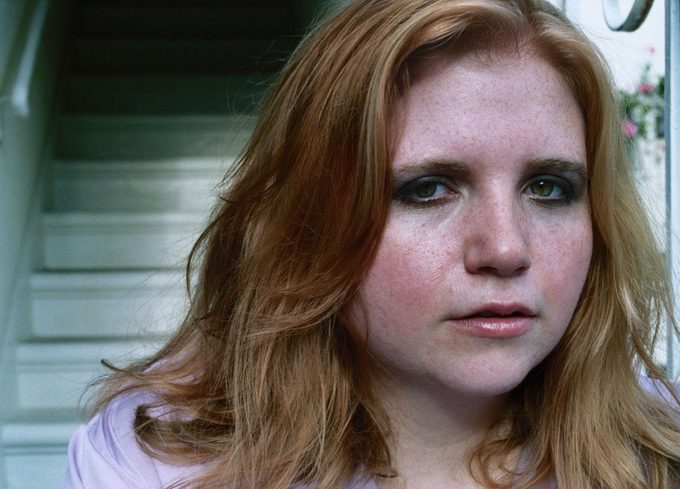I Had Anxiety for 30 Years—Till This One Eureka Moment Helped Me Recover
From the time I was a small child, anxiety was an ever-present problem. I tried to ignore it, then unsuccessfully tried to solve the problem myself. Finally, I had an "aha" moment that changed my life.

I used to have so much anxiety that I couldn’t have even written this article.
…Instead, the chronic worry would have taken over.
Self-sabotage was a side effect of anxiety in so many different situations throughout my life. I even recall having anxiety as a small child. When going to church or school, I felt extremely anxious and found it difficult to talk to other kids. I worried incessantly that I would end up in hell if I made one mistake. I could get anxiety about nearly anything—until I finally found the one thing that worked for me.
The Mayo Clinic reports that common anxiety symptoms include having difficulty controlling worry and having a sense of impending doom, and those things plagued me. My anxiety was a silent force that sabotaged a lot of joy throughout my life. It held me back from so many things throughout my teenage years. Even into my adulthood, anxiety was like a demon that was chasing me, yet somehow always one step ahead of me. Here are 14 more things people with anxiety will understand.
Despite my anxiety, I pursued a career in acting. I moved to Los Angeles and landed roles in television and a movie (I played the role of Dana in the film The Third Nail). I also started my writing career. I was doing what I loved, and yet there was my anxiety, undermining my important moments. I was certainly not alone: According to the Anxiety and Depression Association of America, anxiety disorders are the most prevalent mental health condition in the U.S., and over 40 million adults are afflicted with the condition. (Nicer people are more prone to developing this mental illness—here’s why.)
After some difficulties in my early thirties, my anxiety and accompanying depression were worse than ever. At my lowest point, a new friend finally convinced me to do the one thing that would end up changing everything—the thing I had been resisting for no good reason: I finally accepted that I needed therapy.
My path was not unusual: People with anxiety disorders often resist therapy, feeling they should be able to manage on their own, according to the American Psychological Association (APA). But talk therapy is effective in treating all types of anxiety, the APA points out.
I found a therapist I clicked with, and my sessions quickly led to other forms of self-care: I wrote in my journal every day about my feelings, my worries, and my hopes. I saw a life coach and went to a support group. I also committed to reading personal development books. One that particularly helped was Someone To Talk To by Joyce Houser. Her book led me through the therapy process and helped me stay engaged. I made a habit of recording things I was thankful for each day. I took the time to savour the moments when any of my senses were delighted, and I made a self-care kit for times when I needed comfort. Here are more health benefits of journalling.
One day while I was sitting in therapy, I suddenly realized I hadn’t been anxious in months. I was free! I used to berate myself, yet my self-talk was now gentle. I wasn’t owned by my issues; I owned them by acknowledging and addressing them. It took a lot to get to that point, but the reward was well worth the effort.
Now that I have my anxiety under control, my heart is filled with gratitude. I am able to more fully embrace self-love and self-acceptance. For someone who once lived every moment in emotional torment, I appreciate a feeling of peace, and I’m so happy to be alive in this wonderful world. Next, find out the silent signs you might have high-functioning depression.



